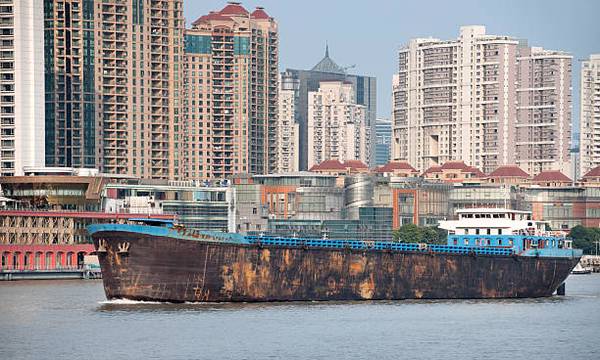Growing Russian shadow fleet makes oil price cap ‘unenforceable’ – World Bank
The G7 oil price cap imposed on Russian crude oil in late 2022 seems powerless in the face of the country’s expanding shadow fleet, the World Bank says.
 PHOTO: An old oil tanker on the river Huangpu. Getty Images
PHOTO: An old oil tanker on the river Huangpu. Getty Images
A coalition of G7 members and Australia set price caps on Russian oil and refined products in retaliation to the country’s invasion of Ukraine in February 2022. The G7 is made up of Canada, France, Germany, Italy, Japan, the UK, the US and the “non-enumerated member” EU.
Earlier this year, two price caps on Russian refined products were set. The first one was a price cap of $100/bbl on products such as diesel and gasoil that trade at a premium to crude. A cap of $45/bbl was set on products like fuel oil, which traded at a discount to crude. The products price caps followed high on the heels of a $60/bbl price on crude oil originating from Russia.
These price caps have not created any “significant supply disruptions, with the volume of Russian oil production and exports remaining relatively constant,” the World Bank said. “There has been increasing uncertainty regarding the discount at which Russian oil trades, as the price quotes for the Urals benchmark are opaque,” it added.
From 2021 and 2023, Russia’s exports to the European Union (EU), the US, the UK and other Western allies of Ukraine declined by 53%. However, this decline was offset by a significant increase of 40% in exports to China, India and Turkey during the same time, the World Bank report argued.
By assembling a shadow fleet of poorly maintained vessels that are used to circumvent sanctions, Russian crude oil has effectively been traded outside the imposed price cap, the World Bank said. Notably, the official Urals [Russian crude benchmark] “recently breached the cap for more than three months, averaging $80 per barrel [$80/bbl] in August,” the World Bank said.
A shadow fleet or a “dark fleet” primarily consists of older and environmentally hazardous vessels that intentionally evade regulations. These ships are said to operate under the radar, by sailing without insurance or disabling their tracking transmitters. Shadow fleet owners are infamous for the covert practice of forging documents to avoid industry standards.
In March this year, the International Maritime Organisation (IMO) noted an urgent need to address the rising use of shadow fleet ships for ship-to-ship (STS) transfers of Russian crude oil, which increases the risk of oil spills and collisions at sea. The IMO's Legal Committee discussed the issue at its 110th meeting, where it was informed that a fleet of 300-600 tankers make up the global shadow fleet.
In June, European Commission president Ursula von der Leyen announced stricter measures to crack down on unsafe and shady STS transfers involving shadow fleet ships.
With mounting concerns over use of shadow fleets to evade sanctions and undermine international protocols, it is evident that the problem persists despite calls from global agencies for stricter measures. It is unclear whether there has been any actual progress in cracking down on price cap evasion.
By Aparupa Mazumder
Please get in touch with comments or additional info to news@engine.online





